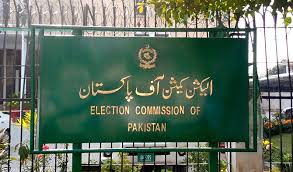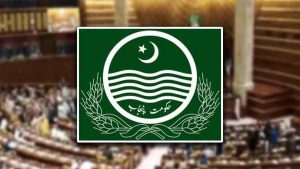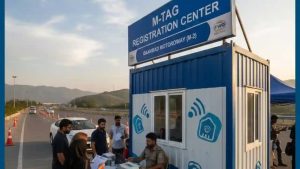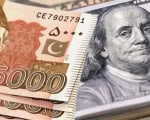The Election Commission of Pakistan (ECP) announced on Thursday that 39 lawmakers who ran as independent candidates in the February 8 elections and later joined the Sunni Ittehad Council (SIC) are now recognized as members of the Pakistan Tehreek-e-Insaf (PTI) following the Supreme Court’s July 12 ruling on the reserved seats case.
The ECP published a notification on its website, declaring these 39 National Assembly members as part of the former ruling party, PTI, since they had indicated their affiliation with PTI in their nomination papers for the February 8 nationwide elections.
This decision was made during a key session chaired by Chief Election Commissioner Sikandar Sultan Raja, where it was concluded to publish the notification affirming the lawmakers’ affiliation with the Imran Khan-founded party. Among the notified PTI members of the National Assembly (MNAs) are Asad Qaiser, Sher Afzal Khan, Latif Khan Khosa, Zartaj Gul, Shandana Gulzar Khan, Zain Hussain Qureshi, Malik Aamir Dogar, Ali Afzal Sahi, Ali Khan Jadoon, and others.
The PTI candidates, who were notified by the ECP, had declared their party affiliation with PTI in their nomination papers before the 2024 general elections. Due to the loss of its election symbol, PTI candidates ran as independents in the February 8 elections but were instructed by the party to join the SIC to qualify for reserved seats.
After winning the most seats in the general polls earlier this year, PTI was initially denied reserved seats by the ECP, a decision upheld by the Peshawar High Court (PHC), citing the party’s failure to submit a list of candidates for reserved seats within the specified time.
The Supreme Court, on July 12, ruled that PTI remains a political party that won general seats in the national and provincial assemblies in the February 8 elections and is thus entitled to reserved seats.
The SC’s full bench, led by Chief Justice of Pakistan Qazi Faez Isa, by a majority of 8, overturned the PHC’s March 25 judgment and declared the ECP’s March 1 order unconstitutional and void.
Following the SC’s directives, the ECP held multiple sessions to discuss the verdict. In a session last week, the ECP noted that 39 candidates of the embattled party had declared their PTI affiliation in their nomination papers. However, 41 candidates who were declared independents did not mention PTI in their nomination papers, did not disclose their party affiliation, nor submitted any party ticket.
“Therefore, the Returning Officers allowed them to contest the election as independents. Later, these MNAs voluntarily joined the Sunni Etihad Council (SIC) within three days as required by law after winning the election,” the ECP stated.
PTI appealed the ECP and PHC decisions in the Supreme Court, but it was rejected. The ECP clarified that PTI was neither a petitioner in the case against the ECP in the apex court nor the PHC.
It is important to note that the ruling parties, Pakistan Muslim League-Nawaz (PML-N) and the Pakistan Peoples Party (PPP), have filed a review petition in the Supreme Court against the reserved seats verdict, which was an unexpected legal victory for the main opposition party. This verdict has not only allowed PTI’s return to parliament, which was barred from the February 8 polls due to the ECP’s December 2023 ruling, but also increased pressure on the coalition alliance by altering the National Assembly’s composition.













